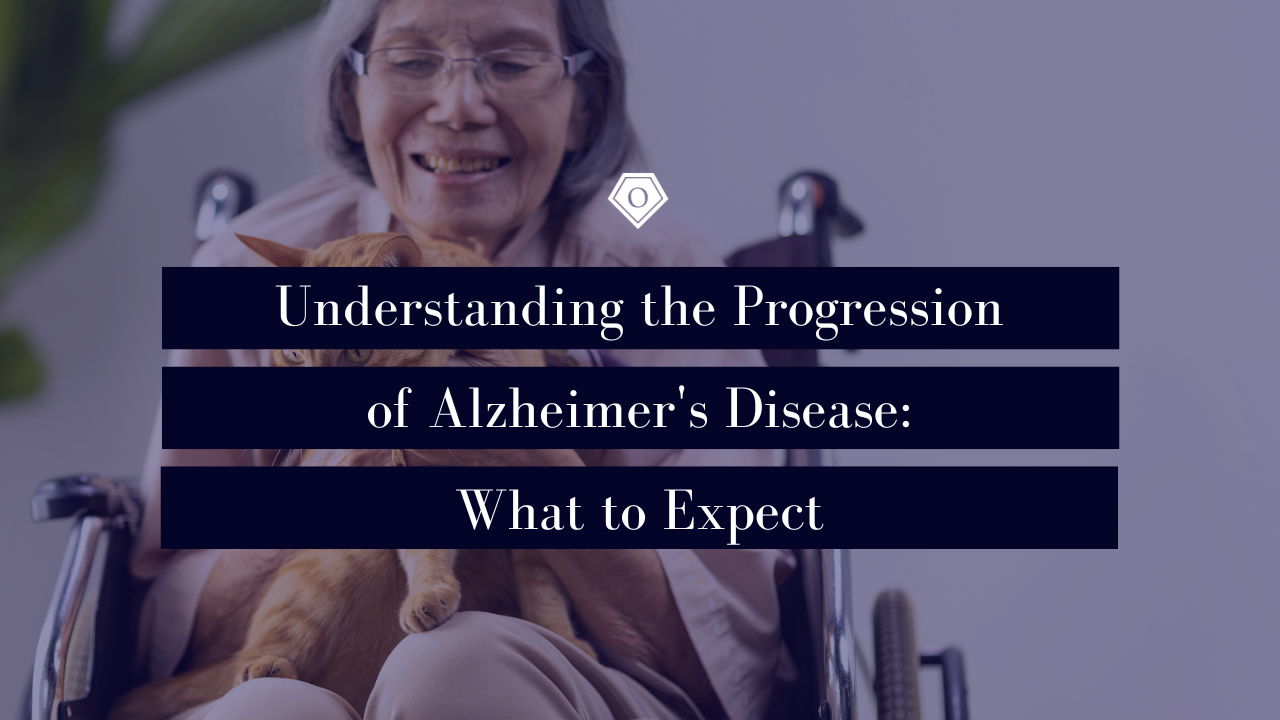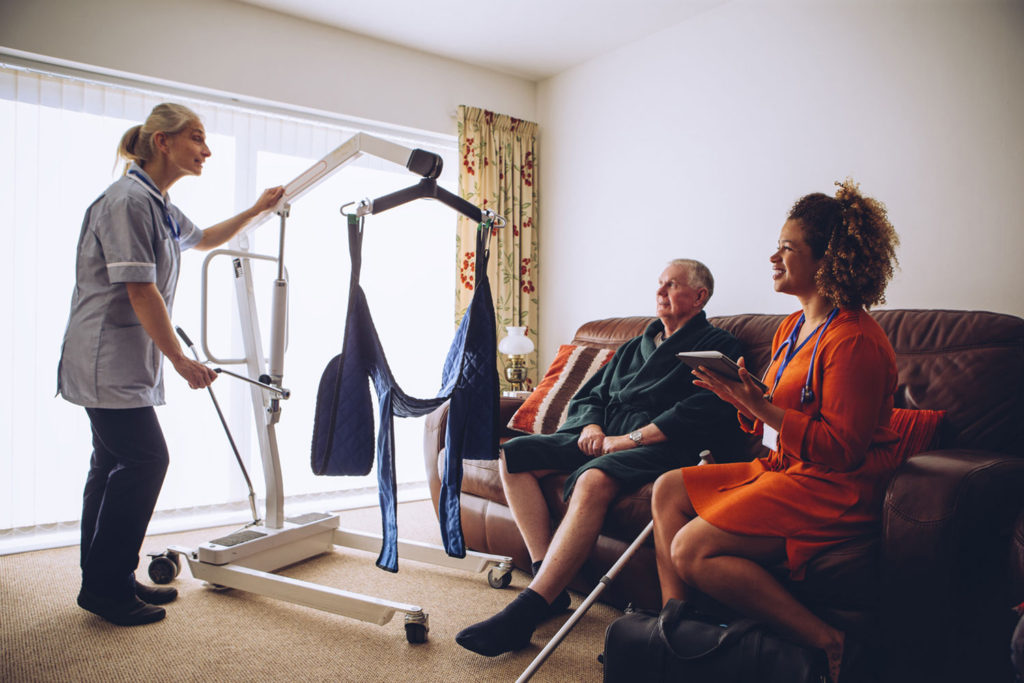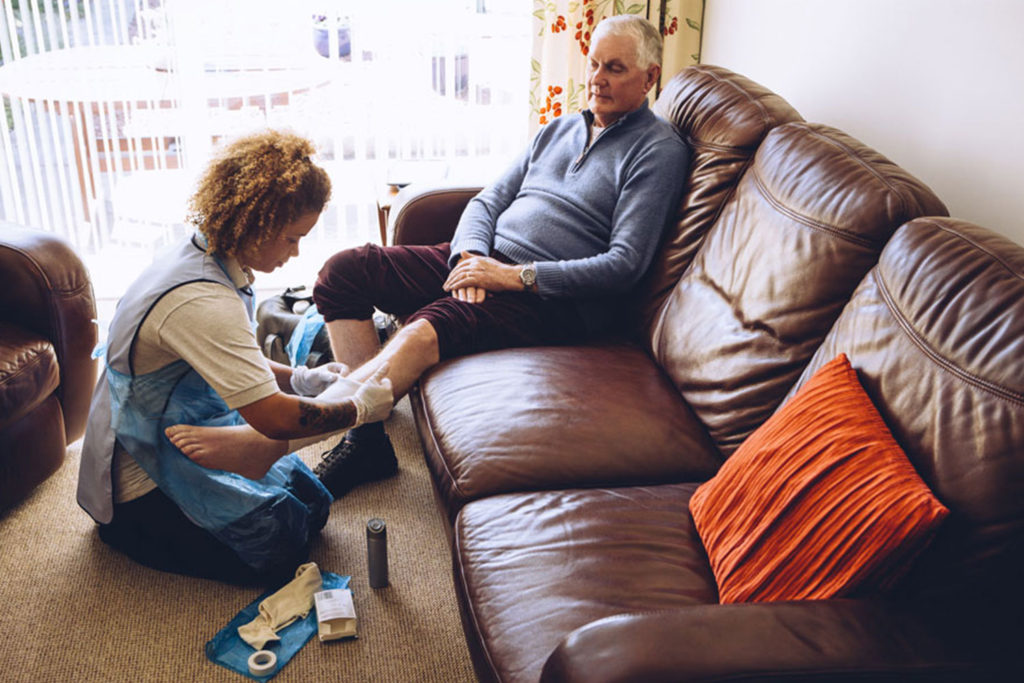Understanding the Progression of Alzheimer’s Disease: What to Expect
Alzheimer's disease is a complex neurodegenerative condition that affects millions of individuals worldwide. As one of the most common forms of dementia, it progressively impairs memory, cognitive abilities, and daily functioning. Understanding the stages of Alzheimer's disease and what to expect can help patients, caregivers, and families navigate the journey with greater awareness and preparedness.
Navigating Care: Understanding the Difference Between Family Caregivers and Home Health Care Professionals
In healthcare, particularly in assisting individuals in need, two essential pillars are family caregivers and home healthcare professionals. While both play critical roles in ensuring the well-being of loved ones, there are distinct differences between the two. Understanding these disparities can help families make informed decisions about the type of care best suited to their needs. In this post, we'll delve into the unique characteristics of family caregivers and home health care professionals, shedding light on their respective roles, responsibilities, and contributions.
Dining with Dignity: Practical Tips for Feeding Dementia Patients
Living with dementia poses unique challenges, not only for the individual diagnosed with the condition but also for their caregivers and loved ones. However, by making simple environmental adjustments, it's possible to create a more supportive and dementia-friendly space that enhances quality of life and promotes well-being. In this article, we'll explore practical tips and adjustments that can be implemented to create a dementia-friendly environment, fostering comfort, safety, and independence for those living with dementia.
Create a Dementia-Friendly Environment: Simple Adjustments for Better Quality of Life
Living with dementia poses unique challenges, not only for the individual diagnosed with the condition but also for their caregivers and loved ones. However, by making simple environmental adjustments, it's possible to create a more supportive and dementia-friendly space that enhances quality of life and promotes well-being. In this article, we'll explore practical tips and adjustments that can be implemented to create a dementia-friendly environment, fostering comfort, safety, and independence for those living with dementia.
Effective Communication Strategies for Caregivers of Alzheimer’s Patients
Communication is vital in every aspect of our lives, and its importance becomes even more pronounced when caring for someone with Alzheimer's disease. Alzheimer's progressively affects memory, cognition, and language abilities, making communication challenging for both patients and caregivers. However, by employing effective communication strategies, caregivers can enhance their interactions with Alzheimer's patients, fostering understanding, connection, and a sense of dignity. In this comprehensive guide, we'll explore various communication techniques tailored to the unique needs of Alzheimer's patients, empowering caregivers to navigate this journey with compassion and effectiveness.
Breaking Down the Myths about Surrounding Dementia
Dementia is a complex and often misunderstood condition that affects millions of people worldwide. Despite its prevalence, there are still many myths and misconceptions surrounding dementia that can lead to stigma, fear, and misunderstanding. In this blog post, we will delve into some of the most common myths about dementia, debunking them with facts and insights from experts in the field.











